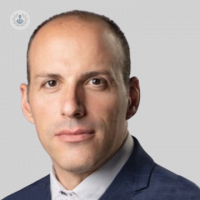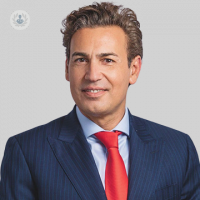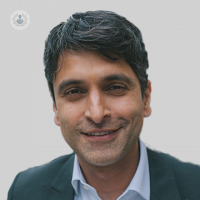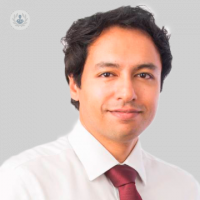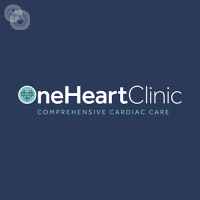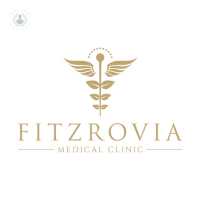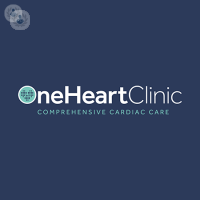What is a heart check-up?
A heart check-up (or heart screening) is used to detect any early heart abnormalities. The doctor will be able to determine if you are at risk of developing heart disease within the next five to 10 years. They will work with you to manage the risk of heart disease by encouraging lifestyle changes (including exercise and dietary adjustments), and in some cases, taking medication.

What risk factors will my doctor look for?
As part of your check-up, the doctor will look for and discuss the following risk factors during your heart health assessment:
- Hypertension (high blood pressure)
- High cholesterol (and other lipid levels)
- Blood sugar levels
- Obesity
- Lifestyle habits, such as smoking and alcohol consumption
- A family history of cardiac disease, including premature coronary artery disease
Are there any risks to having a heart screening?
Screening tests may cause harm as they have the potential to present false results. A false negative may put the patient into a group of people who are less likely to have any heart conditions, which provides false reassurance.
A false positive may put the patient into a group of people who are more likely to have the condition, which can result in anxiety and referral for additional diagnostic tests that may not be necessary.
What heart tests may be made?
If the doctor suspects that you have heart disease, the following may be required:
- Full history and examination
- Body Mass Index (BMI, based on height and weight)
- Blood Pressure
- Electrocardiography (ECG)
- Blood tests, including lipids, diabetes check (HbA1C), kidney function, blood count and inflammatory markers
- Exercise stress test (on a treadmill or stationary bicycle)
- Echocardiography (heart ultrasound scan)
- Stress Echocardiography
- Coronary CT angiography
- Coronary Angiography
At what age should I have a heart check-up?
Health screenings, which includes tests for your heart health should regularly happen between ages 40 - 64. This should be earlier if you have a strong family history of heart disease.
05-26-2017 04-06-2023Heart check up
Dr Andrew Vanezis - Cardiology
Created on: 05-26-2017
Updated on: 04-06-2023
Edited by: Carlota Pano
What is a heart check-up?
A heart check-up (or heart screening) is used to detect any early heart abnormalities. The doctor will be able to determine if you are at risk of developing heart disease within the next five to 10 years. They will work with you to manage the risk of heart disease by encouraging lifestyle changes (including exercise and dietary adjustments), and in some cases, taking medication.

What risk factors will my doctor look for?
As part of your check-up, the doctor will look for and discuss the following risk factors during your heart health assessment:
- Hypertension (high blood pressure)
- High cholesterol (and other lipid levels)
- Blood sugar levels
- Obesity
- Lifestyle habits, such as smoking and alcohol consumption
- A family history of cardiac disease, including premature coronary artery disease
Are there any risks to having a heart screening?
Screening tests may cause harm as they have the potential to present false results. A false negative may put the patient into a group of people who are less likely to have any heart conditions, which provides false reassurance.
A false positive may put the patient into a group of people who are more likely to have the condition, which can result in anxiety and referral for additional diagnostic tests that may not be necessary.
What heart tests may be made?
If the doctor suspects that you have heart disease, the following may be required:
- Full history and examination
- Body Mass Index (BMI, based on height and weight)
- Blood Pressure
- Electrocardiography (ECG)
- Blood tests, including lipids, diabetes check (HbA1C), kidney function, blood count and inflammatory markers
- Exercise stress test (on a treadmill or stationary bicycle)
- Echocardiography (heart ultrasound scan)
- Stress Echocardiography
- Coronary CT angiography
- Coronary Angiography
At what age should I have a heart check-up?
Health screenings, which includes tests for your heart health should regularly happen between ages 40 - 64. This should be earlier if you have a strong family history of heart disease.


Vitalise your heart with natural vitamins and exercise
By Dr Riyaz Kaba
2024-11-08
It's possible to implement regular cardiology check-ups, consistent exercise and maintain a healthy diet to improve your heart health. But what should you do to achieve this? Experienced cardiology consultant Dr Riyaz A Kaba advises how. See more


Understanding the four stages of heart failure
By Dr Kare Tang
2024-11-08
Dr Kare Tang, one of our top consultant cardiologists, walks us through the four stages of heart failure and offers us an insight into what a treatment plan might look like if you have received a diagnosis. See more


Why are regular heart check-ups so important?
By Dr Mohammad Tamimi
2024-11-08
Regular heart check-ups are vital for maintaining optimal cardiovascular health and preventing heart disease, a leading cause of morbidity and mortality worldwide. Read our latest article to find out why getting your heart checked every once in a while is vital. See more
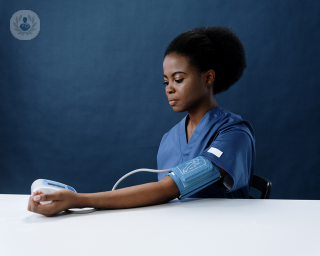

What is hypertension and why should you take notice?
By Dr Mark Thomas
2024-11-08
Hypertension is much more common than you might think. Around a third of UK adults have it and many may not even realise. The only way to know is to get tested. Dr Mark Thomas explains what the numbers on blood pressure readings mean and how he can help you if you have been recently diagnosed. See more
Experts in Heart check up
-
Dr Nicholas Robinson
CardiologyExpert in:
- Chest pain
- Heart check up
- Angina
- Heart attack
- Stent
- Coronary angiography
-
Dr Rodney Foale
CardiologyExpert in:
- Chest pain
- Coronary angiography
- Coronary angioplasty
- Heart check up
- Hypertension (high blood pressure)
- Valvular heart disease
-
Dr Francesco Lo Monaco
CardiologyExpert in:
- Echocardiogram
- Electrocardiogram
- Heart check up
- Hypertension (high blood pressure)
- Palpitations
- Stress test
-
Dr Ravi Assomull
CardiologyExpert in:
- Heart check up
- MRI
- Preventive cardiology
- Sports cardiology
- Coronary CT
-
Dr Arjun Ghosh
CardiologyExpert in:
- Cardio-oncology
- Shortness of breath
- Chest pain
- Palpitations
- Hypertension (high blood pressure)
- Heart check up
- See all

One Heart Clinic Reading
One Heart Clinic Reading
Bupa Health and Dental Centre, Centurion Court, Reading RG1 5AS
No existe teléfono en el centro.
By using the telephone number provided by TOP DOCTORS, you automatically agree to let us use your phone number for statistical and commercial purposes. For further information, read our Privacy Policy
Top Doctors

Fitzrovia Medical Clinic
Fitzrovia Medical Clinic
Fitzrovia Hospital, 13-14 Fitzroy Square
No existe teléfono en el centro.
By using the telephone number provided by TOP DOCTORS, you automatically agree to let us use your phone number for statistical and commercial purposes. For further information, read our Privacy Policy
Top Doctors

One Heart Clinic Marylebone
One Heart Clinic Marylebone
10-11 Bulstrode Pl, London W1U 2HX
No existe teléfono en el centro.
By using the telephone number provided by TOP DOCTORS, you automatically agree to let us use your phone number for statistical and commercial purposes. For further information, read our Privacy Policy
Top Doctors
-
One Heart Clinic Reading
Bupa Health and Dental Centre, Centurion Court, Reading RG1 5AS, ReadingExpert in:
- Arrhythmia
- Cardiology
- Preventive cardiology
- Diagnostic Imaging
- Chest pain
- Cardiovascular disease
-
Fitzrovia Medical Clinic
Fitzrovia Hospital, 13-14 Fitzroy Square , Central LondonExpert in:
- Adult Diabetes
- Chronic diseases
- Women’s health
- Paediatrics
- Health check up
- Sexual health
-
One Heart Clinic Marylebone
10-11 Bulstrode Pl, London W1U 2HX, Central LondonExpert in:
- Cardiology
- Preventive cardiology
- Chest pain
- Breathlessness
- Palpitations
- Cardiovascular disease
- See all
- Most viewed diseases, medical tests, and treatments
- Nutrition
- Weight loss injections
- Genetic testing
- Abdominal pain
- Minimal access surgery (keyhole surgery)
- Bariatric surgery
- Vaginal cytology
- One Stop Breast Clinic
- Heart murmur in children
- Aortic aneurysms
